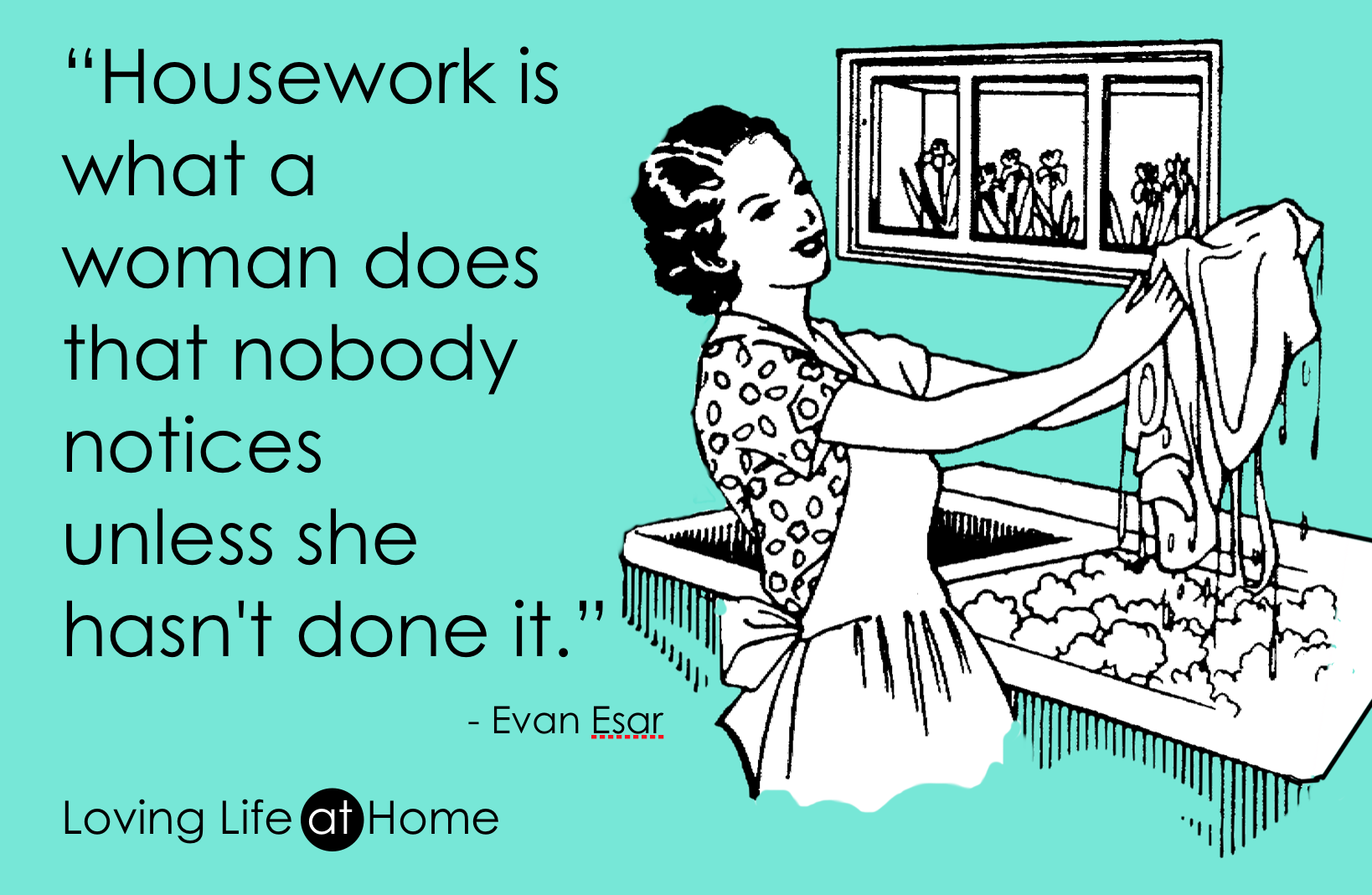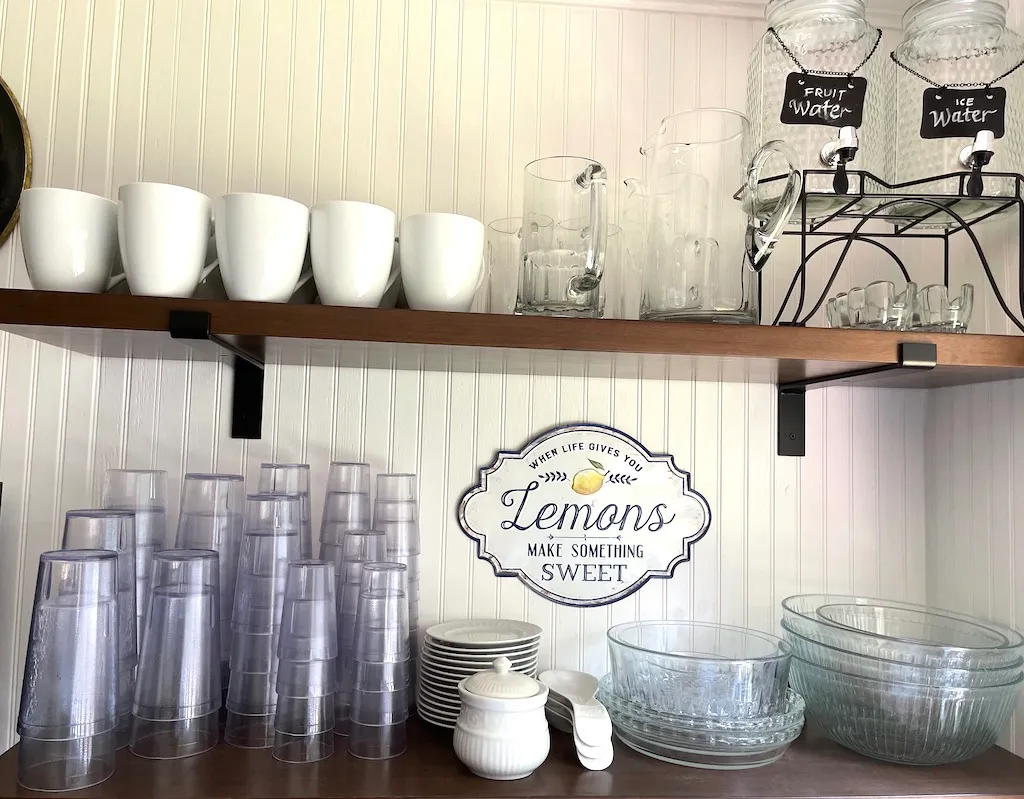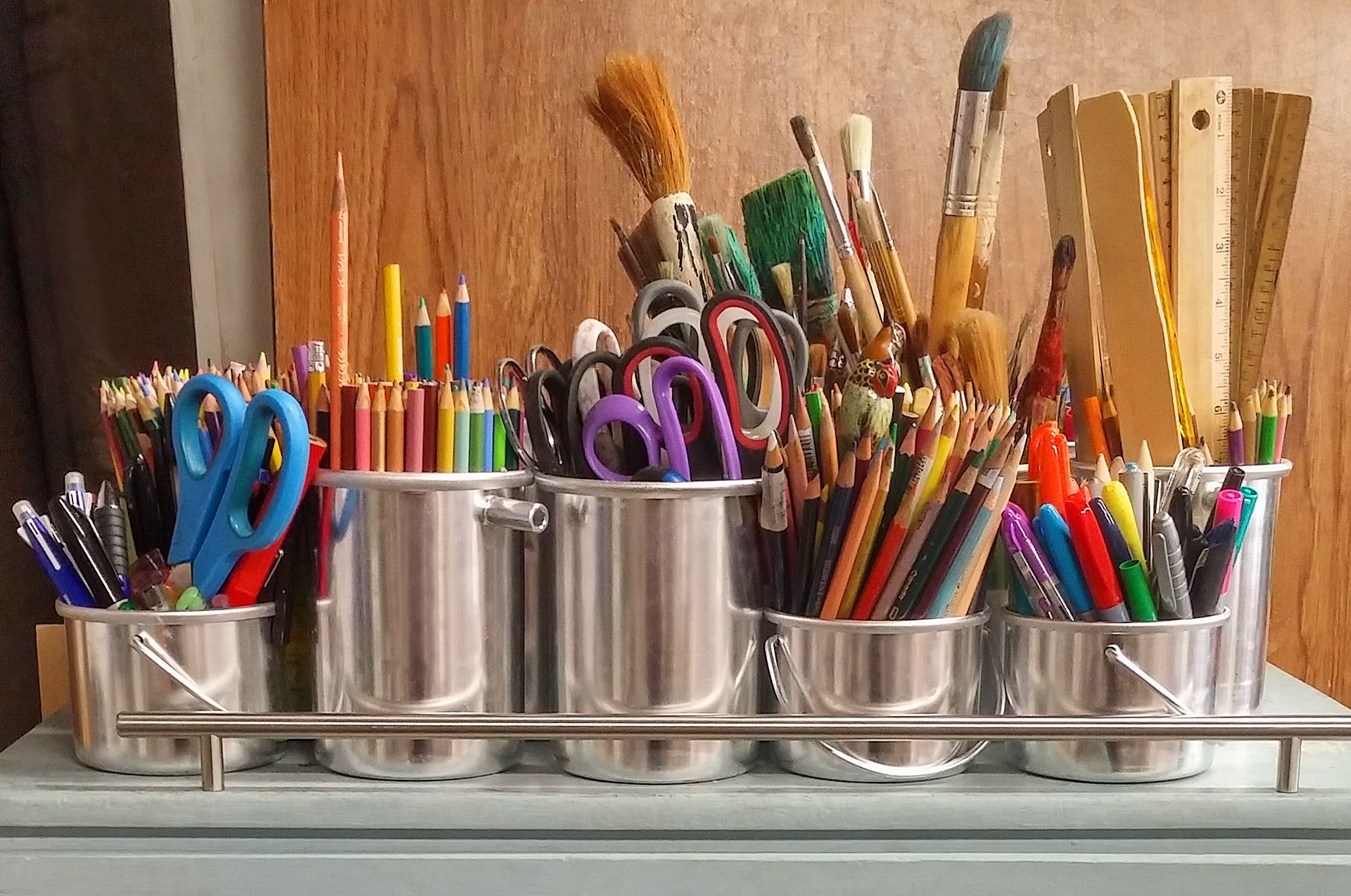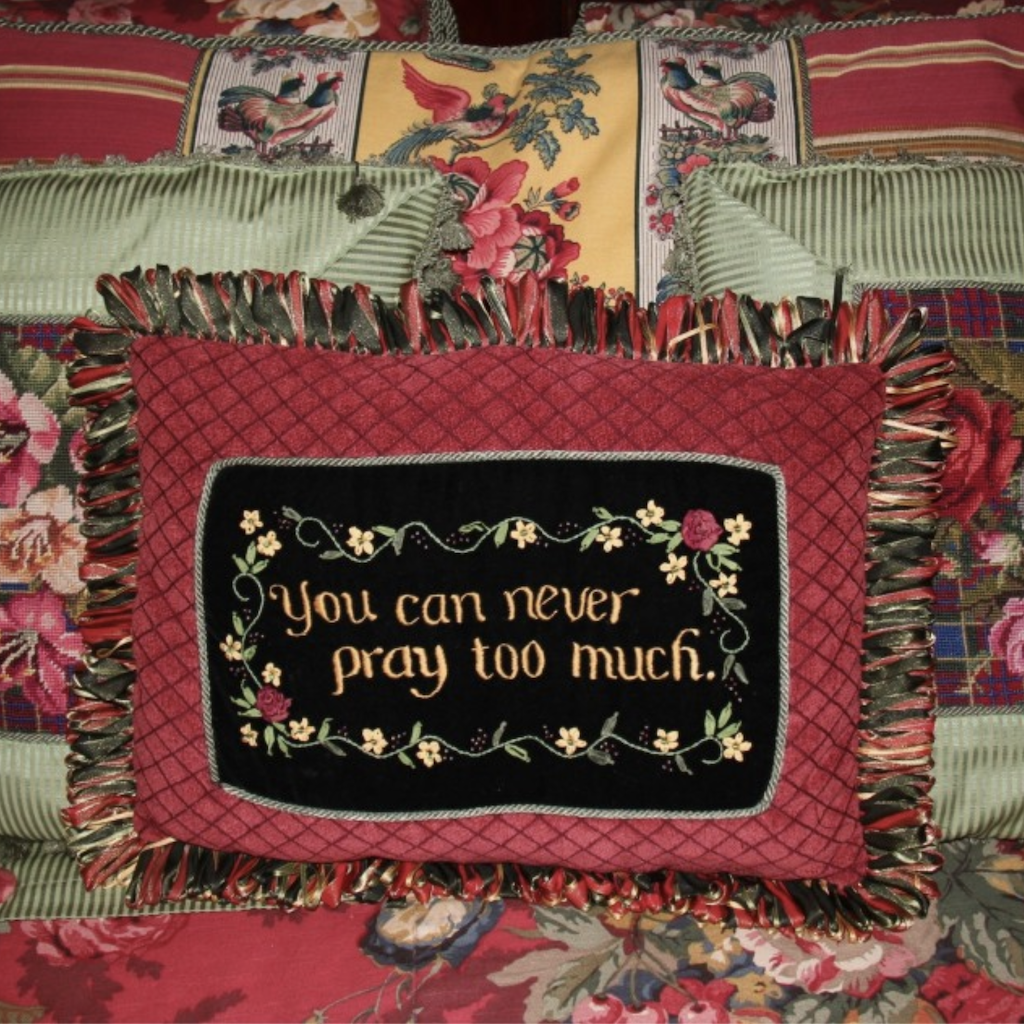Housekeeping Matters: 5 Habits that Help

Creating and maintaining a home is serious business. Housekeeping matters. I’m not trying to chain anybody to a vacuum cleaner here, but I believe, to the best of our abilities, we should try to maintain a clean and orderly home. We should seek to make it a haven of rest for our entire family.
Whatever chores we do, whether the lion’s share or an even split with our spouse, should be done consistently, cheerfully, and as unto the Lord. Although our families certainly benefit when we keep a tidy home, our faithfulness in this area is ultimately a service to God (Ephesians 6:7; Colossians 3:23).
God holds us accountable for everything entrusted to our care (including our home), and He expects us to use it in a way that blesses those around us and glorifies Him.
God is not the author of chaos and confusion, so messes and mayhem should not be the pattern for our homes. Rather, He is a God of order. He has set the stars in their places and has numbered the hairs on our heads.
And since God has created us in His own image, we should make it our goal to reflect this orderly aspect of His character in our daily lives — including the way we keep house.
5 Tips to Make Housekeeping Easier
There are several habits that almost all good housekeeper have in common:
A good housekeeper has a reliable method for dealing with clutter.
She doesn’t let junk mail pile up on her desk or kitchen counter for days or weeks at a time. Instead, she tosses it straight in the trash or recycle bin as soon as it enters the house.
She deals with broken toys, outgrown clothes, leftover food, and anything else that has outlived its usefulness in similar fashion, purging her home of worthless junk and keeping everything in it in good working order.

A good housekeeper designates a place for everything and keeps everything in place.
She rarely needs to spend precious minutes hunting car keys or purses or shoes when she’s in a hurry to go somewhere, because each of those items can be found exactly where it belongs.
She stores the most frequently used items in the most easily accessible space, making it a simple matter to return anything to its proper home. She also stores things as near their point of use as possible:
- coffee mugs and creamer close to the coffee maker
- garbage bags and dust pan beside the trash can
- copy paper and computer ink next to the printer

A good housekeeper is a good problem solver.
She’s not afraid to think outside the box. If one approach isn’t working, she’s not afraid to try another. Housekeeping matters too much to her to remain in a rut that doesn’t lead to the results she desires.
- If dirty shoes keep tracking mud onto clean floors, she’ll put a shelf or basket by the door so kids can shed their shoes before coming inside.
- If the clothes rod in the coat closet is too high for her little ones to reach, she’ll install hooks at their level so they can hang up their jackets that way instead of dropping them on the floor.
- If office supplies such as scissors, tape, and ballpoint pens keep finding their way to the kitchen, she’ll store an extra stash of them there for easy access.

A good housekeeper routinely enlists the help of others.
She realizes she cannot do everything herself. This is especially important when children are part of the picture.
The greater the number of children in a household, the more frazzled the homemaker will become unless those children are trained to pitch in and help. Some mess is to be expected when sharing a home with little ones, but if you are always inside the house working while your children are outside playing, then something is amiss.
I know, I know. It often seems easier to do the chores yourself without little ones under foot, but the cost of this perceived convenience is too high: Not only are you missing out on the opportunity to make precious memories with them, both at work and at play, but you are forfeiting an opportunity to teach them important life skills.
When everyone pitches in to get the work done, the chores are (theoretically) finished faster, and then you can all relax and have fun together as a family.

A good housekeeper makes wise use of whatever time is available.
She doesn’t wait until she has a full day to devote to house cleaning to get started. She realizes that little by little will add up over time.
She also recognizes the value of a job half-done. If she doesn’t have time to deep clean, she spot cleans. If she doesn’t have time to spot clean, she straightens.
She knows no matter how thoroughly she scours a cluttered house — washing windows and vacuuming rugs and polishing doorknobs — it will still seem dirty if the beds aren’t made or there’s paper strewn all over the floor.Conversely, she understands that an uncluttered house, one where everything’s picked up and put away, will look clean, even if the furniture still needs dusting or the floor hasn’t been swept.

Here, as in so many other things, there is a need for balance. Keeping a tidy house should be a means to an end, not the end goal itself.
I view housekeeping as a way to serve God by being a good steward over what He has given me, to care for my family by creating a pleasant place for us all to live, to show gratitude to my husband for the home he has provided, to honor him by keeping it neat and clean the way he likes it, to train my children to be conscientious and competent workers, and to reach out to others by extending hospitality.
But if my desire for a clean house makes me irritable and impatient with the people inside it, then my priorities are misplaced.
If I go berserk when a child spills milk on my freshly mopped floor, instead of gently coming alongside to assist and instruct in wiping up the mess, then my clean house has become an idol, and I’m sending my family the message that it is more important to me than they are.
Keeping an immaculate house (in the strictest sense of the word) is not really possible this side of heaven. So it’s futile to make that our goal. Keeping a tidy house, on the other hand, is entirely achievable — even while maintaining a proper and loving attitude toward everyone who lives there. Housekeeping matters. So lets do our best in this area and offer it up as a sacrifice of praise unto God.







I used your graphic on a post about my favorite homemaking books (goes live tomorrow morning). I linked it back to your blog. If that’s not okay, please let me know and I will remove it. Thanks!
Thanks for letting me know and for linking back to my site. I would love to read the post, but haven’t seen it come through in my notifications. Can you leave me a link?
Not totally me, but my husband appreciates what little I am able to do and understands that my 12 hour days leave little time for housekeeping.
I sure appreciate this article on housekeeping. Thank you for sharing and such a good reminder!
Jennifer, I needed this post. Thank you for your wise perspective.
Thank you for writing this. My sister recently turned me to your blog, and I’m so glad she did. I really need to practice these more. I love when my house is clutter free, however that seems to be very rare. I’m also bad about wanting to do it all myself. Thank you for giving me something to pray and think about.
This post is a good reminder for me! Especially point 4 about enlisting the help of others. I do it some but not enough and can’t keep up. Some of my children tend to complain and I hate that so I don’t ask as much as I should. I know that is wrong. It is wrong for ALL of us. Recently my husband and I started working hard to fix this problem. Some days are better, but not consistently. Do you have any hints for getting children to help out cheerfully?
I’ve written a little bit about children’s chores over at my family website. Training early helps establish cheerful attitudes, as oftentimes the younger they are, the more eager they are to pitch in. Beyond that, I recommend working side-by-side along with them (make sure your own attitude stays cheerful :-)), setting a timer and racing the clock to finish the work, and/or playing some lively, the upbeat music in the background.